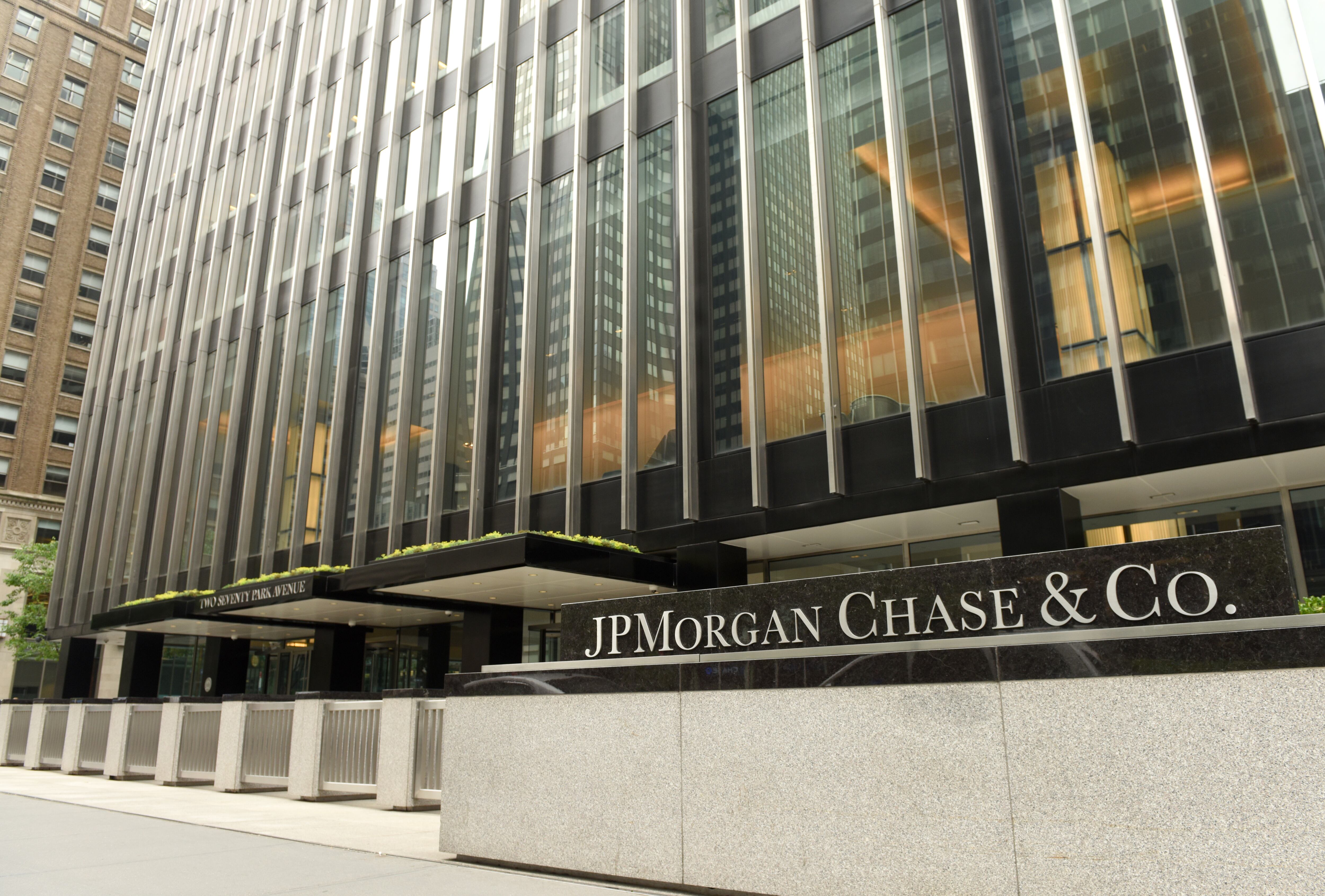NEW YORK (AP) — JPMorgan Chase’s profits jumped sharply in the second quarter as the bank cashed in billions of dollars of its holdings in Visa Inc. But the bank’s results were also helped by higher interest rates, as well as consumers who seemed to still want to spend, despite geopolitical and economic uncertainties.
The nation’s biggest bank by assets on Friday posted a profit of $18.15 billion, up 25% from a year earlier. On a per share basis, JPMorgan earned $6.12 per share, which beat analysts’ estimates.
A significant part of JPMorgan’s results was a $7.9 billion gain on its stake in Visa. The bank converted its ownership in the payment processing giant into common stock in the second quarter. The bank also donated $1 billion of Visa shares to JPMorgan’s philanthropic organization.
Without the gain, profit fell compared with the year-ago quarter due to higher expenses. The bank set aside $3.1 billion to cover potentially bad loans, up sharply from a year earlier, as the bank acknowledged that delinquencies were climbing among some Americans. On a call with reporters, executives said they remain unconcerned about the rising delinquencies, adding that the U.S. consumer is doing just fine.
JPMorgan CEO Jamie Dimon repeated his warnings about heightened geopolitical risks and inflation in his statement to investors. Dimon, in several interviews, has said he believes that Americans and the bank should be preparing for inflation to remain higher than normal for longer than people are expecting.
“There has been some progress bringing inflation down, but there are still multiple inflationary forces in front of us: large fiscal deficits, infrastructure needs, restructuring of trade and remilitarization of the world,” he said.
The latest government reading on consumer prices Thursday showed that price pressures are easing but remain above levels preferred by the Federal Reserve. Still, Wall Street is betting that the Fed has made enough progress brining inflation down that it will cut interest rates at its policy meeting in September.
Two other banks are reporting their results Friday: Wells Fargo and Citigroup.
Wells Fargo earned $4.91 billion in the second quarter, or $1.33 per share, which beat Wall Street targets and last year’s $1.25 per share profit. Revenue of $20.7 billion also beat analyst forecasts and last year’s $20.5 billion.
Wells said growth in fee-based revenue helped to offset declines in net interest income — the difference between what it earned on loans and what it paid out to depositors — which fell 9% to $11.9 billion. That figure was below Wall Street expectations and the bank's shares fell more than 5% in premarket trading.
The San Francisco bank said average loans fell again, to $917 million from $946 million a year ago, as elevated interest rates kept many borrowers on the sidelines.
It was Wells Fargo’s second earnings report since the Biden administration eased some of the restrictions on the bank after a series of scandals.
__
Reporter Matt Ott in Washington contributed.









